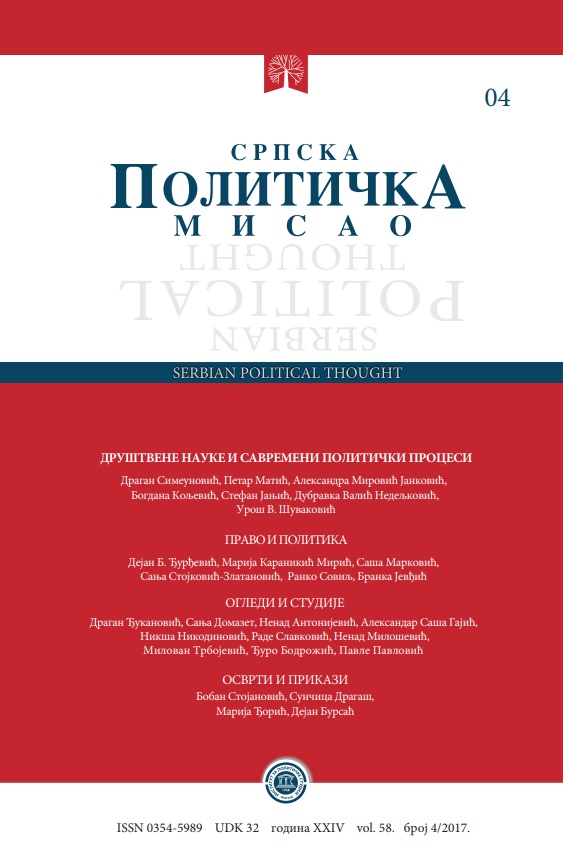Вукова реформа српског језика и заснивање модерне српске националне књижевности и културе
Vukʼs Reform of the Serbian Language and the Founding of Modern Serbian National Literature and Culture
Author(s): Đuro V. BodrožićSubject(s): Cultural history, South Slavic Languages
Published by: Институт за политичке студије
Keywords: Serbian language; Serbian literature; Serbian culture; Vuk Stefanovic Karadzic; national history; tradition; identity
Summary/Abstract: A large sect led by Arseny Carnojevic led a large number of Serbs to today’s Vojvodina. During the 18th century, in the first place, in Budim and St. Andrew, there is an emerging Serbian culture, different from those in monasteries in the Turkish authorities. In order to frustrate the intentions of the Austrian authorities and the Roman Catholic Church in connection with the unification of the Orthodox Church, the church elders sent a call to the Russian Emperor to send them a teacher who would teach Serbian youth, but also equipped the Serbian church to combat the intention of Vienna to teach the Orthodox Serbian people. Russian teachers arrived, they opened schools, and taught classes in Russian-language books and grammar books. Serbian religious books were increasingly giving way to the Russian in order to be completely out of use over time. This way, the Russian literary language has been established not only in the church but also in literature that was not purely church character. Although it has separated itself from the spirit and language of its own people, the works created within this literacy have their value is primarily derived form the fact that were created in the time of extreme literary scarity, and in such circumstances every literary activity has an enlightening character. And importantly, it was a means of combating national self-determination in the center that denied Serbs spiritual and cultural existence, an expression and proof of one’s own spiritual aspirations of the Serbian people in Austria. The Austrian authorities’ intention to use the national language as a means of religious advertising postponed the introduction of that language into Serbian literature. All those who acted in that direction provoked the subjugation on the church hierarchy, including Vuk Karadzic. There were religious fears, class reasons, as well as personal confidentity towards the reformer of the Serbian language and spelling. The question arises as to the extent to which, due to the revolution such as the Vuk’s reform, there has been discontinuity in national culture. It has something in common both for the old and the new Serbian literature, which provides them with spiritual continuity, which is the subject of national history and collectivefolk fate. This is the reason that one can speak of the historical and spiritual continuity of Serbian literature. These ventures are always incompatible with the risk, and a question must be asked about the effect: what is gained and what loses.In this case, there is no dilemma: the victim is insignificant in relation to the gain.
Journal: Српска политичка мисао
- Issue Year: 2017
- Issue No: 4
- Page Range: 335-350
- Page Count: 16
- Language: Serbian

